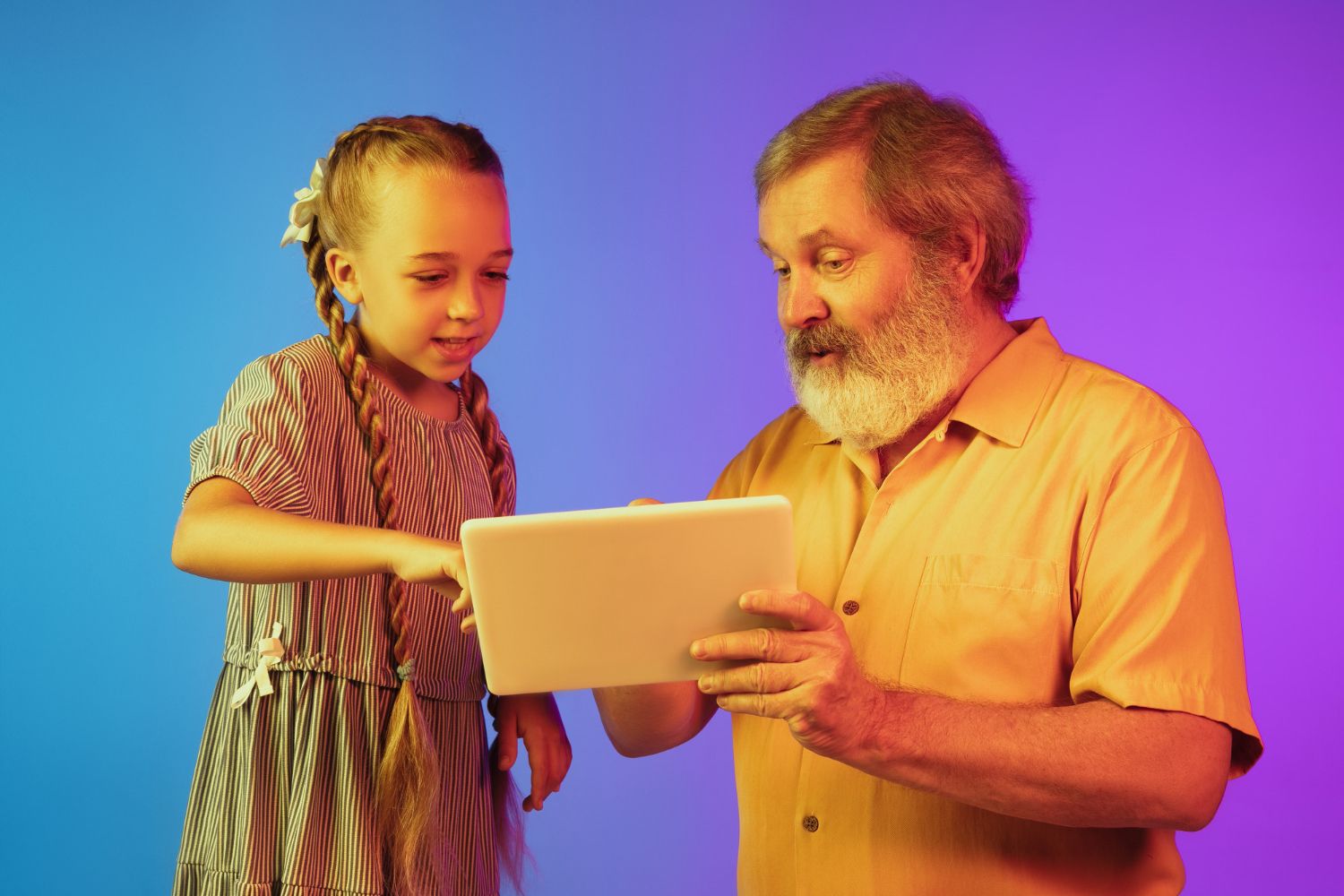
Strengthening intergenerational bonds through tech
By Tara Chklovski, Founder and CEO, Technovation
The theme of this year’s World Telecommunication and Information Society Day, digital technologies for older persons and healthy ageing, got me thinking about the role of intergenerational innovation in caring for an ageing population.
In my work as the founder of an education non-profit, I largely focus on empowering the next generation of technology innovators, problem solvers, and gamechangers.
While older adults can and should play an active role in their own care and technological learning, younger generations hold a great deal of potential to help their elders and strengthen intergenerational bonds.
And younger people think so too—this is something that Technovation Girls teams have tackled several times over the last 15 years.
Here are a few apps that Technovation girls in various countries and communities have created to help older persons address memory care, loneliness, and medication management.
Learning tai chi with AI
As youngsters increasingly turn to technology for work and play, society’s oldest members are often left behind, becoming more and more isolated.
One of the apps from our teams of girls, Maestro.ai, aims to bring together people of different ages through the martial art of tai chi, breaking social exclusion barriers while promoting physical and mental health. It was designed with the objective of enhancing social inclusion and intergenerational understanding, particularly in a Chinese social context.
The app tackles two issues affecting older people in Hong Kong: depression and the lack of intergenerational interaction.
Using artificial intelligence (AI), the team created a virtual tai chi tutor app using the PoseNet machine learning model for human pose estimation. Through the gamification and digitalization of tai chi, young and old alike can now enjoy intergenerational interaction.
AI for Alzheimer’s support
Another app is Qhawana, an AI-powered tool developed in Bolivia to help prevent individuals with Alzheimer’s disease from wandering away and getting lost.
With the help of algorithms that process the movement of people, the app detects erratic or unusual movements caused by spatial disorientation. When someone with Alzheimer’s begins to wander, Qhawana sends notifications to a caregiver or relatives with the patient’s geolocation in real time.
Digital support for dementia sufferers
Memory Haven, conceptualized as a tool to help more than 500,000 families in Ireland affected by dementia, incorporates a music playlist alongside other healthcare features like alerts, face and voice recognition, and health checks to help comfort and care for patients.
The app was designed and tested not only to to help patients with dementia, but also those who care for them.
Gamifying healthcare
The Dementia Care Companion app, developed in Hong Kong, aims to provide personalized training for dementia patients through interactive games. The app also aims to help users maintain a basic routine and improve their interactions with family members.
A corresponding version for family members allows them to monitor the patient’s progress through game statistics. The app includes a location tracking function to help ensure that the patient is safe and protected.
Combating intergenerational loneliness
Maitri, set up in India in 2019, connects older individuals suffering from loneliness and depression with orphaned children lacking role models or parental support.
The app contains a database of local retirement facilities and orphanages to facilitate connections between orphans and senior citizens, improving the social and mental well-being of both parties. Users can also volunteer and donate to retirement homes and orphanages through the app.
Learn more about Technovation Girls, an technology entrepreneurship programme that invites girls to create mobile app or AI-based solutions to solve problems in their local communities.
